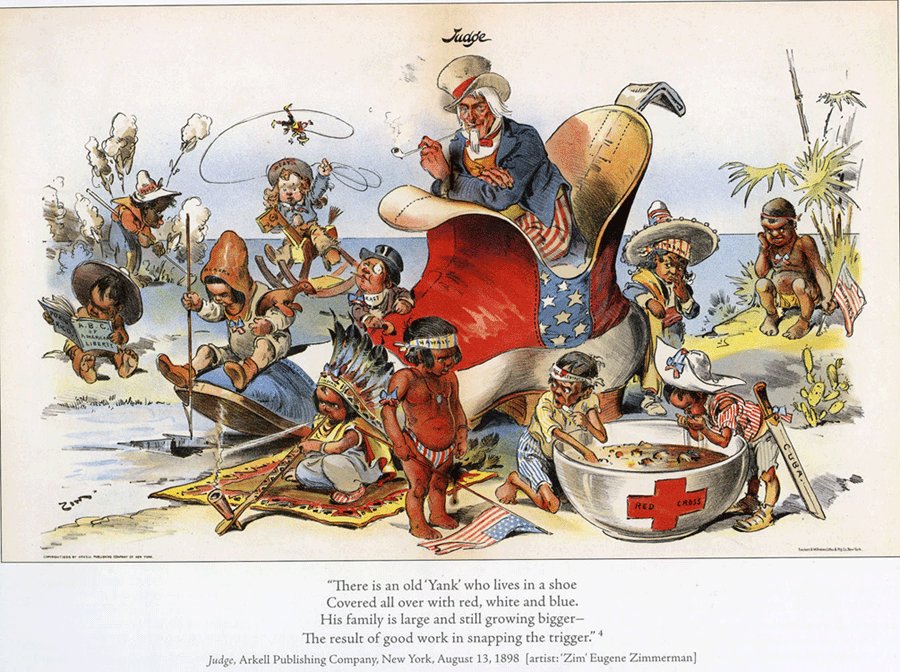
A PEOPLE'S GEOGRAPHY OF AMERICAN EMPIRE
Spring 2007 program at The Evergreen State College, Olympia, Washington
Zoltán Grossman and Larry Mosqueda

| Description / Faculty | Assignments |
| Rooms / Times | Credit Requirements |
| Books | Media / Culture |
| Case studies | Weekly Schedule / Readings |
Bookmark this syllabus website (http://academic.evergreen.edu/curricular/empire)
The syllabus is subject to change; website updates supersede the printed
syllabus.
Lecture download links are in the Weekly Class Schedule below.
Join the Program Listserv: join-empire@lists.evergreen.edu
A People's Geography of American Empire will look at U.S. expansion -- from "Manifest Destiny" and overseas imperialism, to present-day resource wars. The program will focus on the place-making processes inherent in each stage of expansion, and on the imprints they have left on the human and physical landscape. It will examine "imperial places" that have been shaped by each era of expansion, and in turn have shaped each era.
In addition to the origins and rationales underlying each stage of expansion, we will examine how and to what extent the world's landscape reflects and helps to (re)produce U.S. imperial power. The program will aim to interconnect global and local scales, "foreign" and "domestic" policies, and past histories and present-day legacies. It will examine the lasting effects of imperialism on real local places, in particular the expanding network of U.S. military bases around the world. Fort Lewis and other Northwest military installations will be examined as local case studies of military land acquisition and place-making (including a possible one-day field trip).
The program will identify the disproportionate role of small places such as Wounded Knee (Lakota Nation), Subic Bay (Philippines), Vieques (Puerto Rico), Okinawa (Japan), Diego Garcia (Indian Ocean), Guantánamo Bay (Cuba), Chalatenango (El Salvador), Fallujah (Iraq), and Bahrain (Persian Gulf), and locate them within a typology of imperial places. Such a typology could include internal colonies, emptied places, erased places, places of proxy terror, ground zeros, poisoned places, places of resistance, and places of imperial restitution or justice.
As their class project, students will focus on a single local-scale case study, writing separate papers on its past history, present-day landscape, and a resident interview. Students will also turn in a discussion page on the readings (with specific questions or comments) in each seminar.
The program will make a geographical contribution to the study of American Empire, by examining the making and remaking of "imperial places," and using place-based approaches to learning about imperialism. Book and article authors include Chalmers Johnson, Cynthia Enloe, Michael Klare, Arundhati Roy, Howard Zinn, Patricia Limerick, Robert Jensen, Richard Drinnon, Woody Kipp, Michael Ignatieff, and George W. Bush.
Credits: 16
Enrollment: 50 (sophomore and above)
Credit awarded in: Geography, International relations, Community history
FACULTY & OFFICE HOURS
Dr. Zoltan Grossman (Geography and Native American Studies)
Office: Lab 1, Room 3012, TESC, 2700 Evergreen Pkwy. NW, Olympia WA 98505
Mailbox: 1st floor of Lab 1
Hours: Tues., Thurs. 4:00-5:00
Tel. (360) 867-6153
E-mail: grossmaz@evergreen.edu
Web: http://academic.evergreen.edu/g/grossmaz
Dr. Larry Mosqueda (Political Economy)
Office: Sem II E3104, TESC, 2700 Evergreen Pkwy. NW, Olympia WA 98505
Mailbox: Sem II A2117
Hours: Tues., Thurs. 4:00-5:00
Tel. (360) 867-6513
E-mails: mosqueda@evergreen.edu and lmosqueda@comcast.net
Web: http://academic.evergreen.edu/m/mosqueda
| Day | Start | End | Class | Room |
| TUESDAY | 10:00 am | 1:00 pm | Lecture; all-program activities | Sem II E1105 |
| 2:00 pm | 4:00 pm | Larry seminar | Sem II D2107 | |
" |
" |
Zoltan seminar | Sem II D2109 | |
| WEDNESDAY | 10:00 am | 1:00 pm | Workshop (or guest, film, etc.) | Lec Hall 1 |
| THURSDAY | 10:00 am | 1:00 pm | Lecture; all-program activities | Sem II C1105 |
| 2:00 pm | 4:00 pm | Larry seminar | Sem II D2107 | |
" |
" |
Zoltan seminar | Sem II D2109 |
REQUIRED BOOKS (all books and articles are available on reserve at the library)
Other articles and chapters will be handed out, put on line, and/or put on reserve in the library.
(Bold indicates name used in the class schedule below.)
Limerick, Patricia Nelson. 1988. The Legacy of Conquest: The Unbroken Past of the American West, (W.W. Norton and Co., New York) ISBN 0-393-30497-3
Fixico, Donald L. 1998. The Invasion of Indian Country in the Twentieth Century: American Capitalism and Tribal Natural Resources (University of Colorado Press, Boulder). ISBN 0-87081-517-2
Foster, John Bellamy Foster and Robert W. McChesney, eds. 2004. Pox Americana: Exposing the American Empire (Monthly Review Press, New York). ISBN 1-58376-111-0
Drinnon, Richard. 1990. Facing West: The Metaphysics of Indian Hating and Empire Building (Schocken Books, New York). ISBN 0-8052-0978-6
Kipp, Woody. 2004. Viet Cong at Wounded Knee: The Trail of a Blackfeet Activist (University of Nebraska Press, Lincoln). ISBN 0-8032-2760-4
Enloe, Cynthia. 2001. Maneuvers: The International Politics of Militarizing Women's Lives ISBN-13: 978-0520220713
Klare, Michael T. 2002. Resource Wars (Henry Holt and Co., New York). ISBN 0-8050-5576-2
Loveman, Brian. 2004. Strategy for Empire (Rowman and Littlefield Publishers, Lanham, MD). ISBN 0-8420-5177-5
Johnson, Chalmers. 2005. The Sorrows of Empire (Henry Holt and Co., New York). ISBN 10-: 0-8050-7797-9 (pbk).
Jensen, Robert. 2004. Citizens of the Empire: The Struggle to Claim Our Humanity. (City Lights Publishers, San Francisco). ISBN 0872864324
The faculty have chosen and arranged the texts (books, articles, and videos) very carefully and expect that both those enrolled in and those teaching the program will read them very closely, and bring them to seminar. It is the policy of the college bookstore to return used books in the sixth week and new books in the seventh week. Please plan accordingly. In addition to these books, there are a number of articles in the syllabus that are available on-line via the program webpage and/or on closed reserve at the library circulation desk. You should print out or make copies of these materials for active reading and seminar discussion. In addition to readings, the program webpage will have the syllabus, schedule and program-related links. The program website address is http://academic.evergreen.edu/curricular/empire. Bookmark the site for easy reference. We'll update it as changes are made, so the web version will be more current than the paper version. If you have resources, problems, or suggestions concerning the webpage, email Zoltán at grossmaz@evergreen.edu.
Each student will conduct a research project on a local-scale case study, to take some of the broad geographic and political themes of the program and apply them more in-depth in a local place. You should look at your case study as opening up an examination of time (the impacts of different historical eras on one place) and of space (how national and global policies shaped the local geographic place, and how the local-scale place may have influenced the larger national and global scales). The list below are suggested case studies; you may also propose a local-scale case study within your region, keeping in mind the amount of research material available on the place. The two seminars will each cover two world regions, so half of the seminar students will be your Regional Group. You will select your case study in the first Thursday seminar of the program. Your individual project (see below) is based on your Case Study. In Weeks 9 and 10, you will present your individual project to the class as part of your Regional Group's presentation. (*--Case studies selected by students in Spring 2007).
| Regional Group I (Zoltan) | Regional Group II (Larry) | Regional Group III (Larry) | Regional Group IV (Zoltan) |
| United States | Latin America | East Asia/Pacific | Mideast/Europe/Africa |
Wounded Knee, South Dakota* Little Big Horn, Montana* Nevada Test Site, Nevada* Aleutian Islands, Alaska* Bases in Alaska Angel Island, California New Orleans, Louisiana Columbus, New Mexico* Fort Leavenworth, Kansas Fort Lewis, Washington* Fort Lawton, Washington* Port of Tacoma, Washington* Badger Munitions, Wisconsin Hanford, Washington* Spokane, Washington* Los Alamos, New Mexico* Nez Perce Nation, ID/WA/OR* Lower Manhattan, N.Y. South-Central L.A., Calif. Liberty City, Miami Yuma, Arizona Pequot Nation, Connecticut* Mecosta County, Michigan* Labrador, Canada |
Vieques/Roosevelt Roads, Puerto Rico* Panama Canal Zone, Panama* Guantánamo Bay, Cuba* San Salvador, El Salvador* Chalatenango, El Salvador Ciudad Barrios (San Miguel), El Salvador Manta, Ecuador* Colombia--U.S. spraying Arauca, Colombia (oil region) Managua, Nicaragua* Bluefields or San Juan del Sur, Nicaragua Santo Tomas, Nicaragua* Comayagua, Honduras* U.S. Virgin Islands Haiti--U.S. presence* Little Cuba, Miami Caracas, Venezuela* Grenada* El Paso/Ciudad Juárez, Mexico San Diego/Tijuana, Mexico ILEA Police Academy, El Salvador* Santo Domingo, Dominican Republic* Sao Paulo, Brazil* |
Subic Bay, Philippines* Sulu Archipelago, Philippines* My Lai, Vietnam* Saigon/Ho Chi Minh City, Vietnam* Hmong lands in Laos Thailand air bases Okinawa (Japan)* American Samoa (U.S.) Hiroshima, Japan* Bikini/Kwajalein atolls, FSM Cheju Island, South Korea Kaho'olawe, Hawai'i* Oahu, Hawai'i* Dili, East Timor* Seoul, South Korea* Yong-do, South Korea Guam* Saipan, Northern Marianas* Yokosuka, Japan* (or other bases in Japan) U.S. installations in Australia |
Bahrain Kuwait* Qatar Oman Diego Garcia (U.K.)* Green Zone, Baghdad* Abu Ghraib, Iraq Fallujah, Iraq* Balad/Camp Anaconda, Iraq* Gniljane/Camp Bondsteel, Kosovo* Bishkek/Manas, Kyrgyzstan Karshi/Khanabad, Uzbekistan* Bagram/Kandahar, Afghanistan* Frankfurt/Ramstein, Germany* Mogadishu, Somalia* Dhahran/Prince Sultan/King Khalid, Saudi Arabia* Greenham Common, England Faslane, Scotland* Sicily, Italy* Vicenza, Italy Incirlik, other US bases, Turkey* Keszthely/Kaposvar, Hungary |
Cumulative Literature Review: In order to help facilitate careful and critical reading, each student will compose one full single-space page (500-600 words) with review and reflections on the readings from each seminar, due at the beginning of each seminar (beginning the first Thursday). The page should include an abstract, reflections, analysis, questions and/or discussable comments for each seminar's reading. These thoughtful comments will be useful for beginning the seminars. They should be detailed, and refer or respond to specific passages or aspects of the reading (not vague, general observations). These discussion pages will have your name and the seminar date, since they will constitute your attendance in the seminar, and verify that you have completed and reflected on the reading. Students must always bring the reading itself to the seminar (and any assigned readings to all-program meetings).
Project Paper: The main program project is a paper focused on your local case study, to take some of the broad geographic and political themes of the program and apply them more in-depth in a local place. The paper will be completed in three parts, of 6-7 pages each (not including your bibliography). On the due date for each of the three parts, you will bring to seminar the assignment: 6-7 pages, stapled, 12 point double-spaced. The seminar faculty member will return the copy marked with comments. Please take care in your writing. This means treating your readers with respect by drafting, organizing, revising, and proofreading your essay. It should be presented with appropriate grammar, sentence structure, title, page numbers, and the usual bibliography. All your research should be original, and sources of all quotes and ideas must be cited in the text with either footnotes or parentheses (Xxxx, p. y). Copying and pasting text from a website, or lazily passing off anyone else's writing as your own constitutes PLAGIARISM and will be dealt with with zero credit for the project and/or the program. See Evergreen Library's Citation & Style Guide page for the APA citation style, or see the Project Description with the citation guide and research links.
* PART 1 will focus on the past history of the local place, concentrating on the U.S. role and resistance to it.
* PART 2 will focus on the current status of the place, concentrating on how U.S. influence has shaped its political, cultural, economic and ecological landscape, or how local people have responded to the continuing U.S. role.
* PART 3 will involve an interview with a resident of your selected place, conducted by e-mail, phone, or in person. (You will include contact information for this person, so they can be contacted if needed by program faculty.) This person will be someone who is from the place, or who has been there for a long time and has detailed knowledge of the place. You will need to start early in the quarter to make internet and other contacts with multiple people, to make sure you have one to interview!
* THE FINAL DRAFT must be submitted as a single e-mailed Word document (with all three parts in one paper). At the end of the unified paper, your three bibliographies should be combined. Any maps or graphics should be attached, and their sources documented with the URL. The student papers will be used to construct a program website on case studies of imperial places. We expect original research and high quality for these papers, since they will be made available to the general public! Because of the collective nature of this process, any late papers will hold back the entire class and will be credited accordingly.
| Select case study | By April 5 |
| Identify resident interviewee | By April 19 |
| Part 1: Past history | Due April 26 |
| Part 2: Current status | Due May 17 |
| Part 3: Resident interview | Due May 31 |
| Final draft of complete paper | Due June 7 |
Regional group presentation: In Weeks 9 and 10, you will present your individual project to the class as part of your Regional Group's presentation (dates in the course schedule). You will present a summary of what you learned in researching your individual paper, and compare it with other case studies inside (and outside) of your region. Do not simply read your paper; you can use visuals, powerpoint, etc. On the day of your presentation, you are required to submit a one-page abstract, as well as a bibliography of book, article and website sources--conveying enough information so others could duplicate the group presentation.
Some research links:
US Air Force, Navy, Marines, Coast Guard, Army Military Bases
U.S. Department of Defense. 2001. Worldwide Manpower Distribution by Geographical Area. Washington, DC: Directorate for Information, Operations, and Reports (Sept. 30).
Collins, John M. 1998. "Military Bases." Military Geography for Professional and the Public. Washington, DC: National Defense University. Institute for National Strategic Studies.
Perry-Castaneda Map Library (University of Texas)
World Factbook (CIA)
Middle
East Map Game and Other
map games
REQUIREMENTS FOR CREDIT & GENERAL EXPECTATIONS
In this time of war and economic, social, and political crisis, a good deal of the course will focus on international relations in a systematic and intellectual manner. This is a serious class for serious people. There is a good deal of reading and some weeks are more complex than others. Examine the syllabus carefully and plan your time wisely. Please be prepared to work hard and to challenge your and others previous thinking. Sixteen credits will be awarded to all students who successfully fulfill the program expectations.
1. Regularly attend all program meetings;
2. Prepare for and participate in seminar, group discussions, and group work;
3. Write a page with questions and/or comments for each seminar's readings;
4. Write historical background on the case study;
5. Write the current status of your case study;
6. Conduct and write on an interview with a resident of your case study location;
7. Participate in your regional group's presentation, and submit a one-page abstract of your contribution;
8. Submit an final draft of your complete paper as a single document;
9 .Participate in an end-of-quarter evaluation conference and submit written self-evaluation and faculty evaluations.
Engagement: Evergreen programs are not simply a collection of classes, but a deeper effort to form a learning community. We learn from each other, and are therefore responsible to each other to participate in the learning community. Participation is defined as active listening, speaking, and thinking. Communication and attendance are vital to build relationships among students, and between students and faculty. In the interest of fairness, we want all students to have equal access to all information, and to have their attendance count. The program and seminar e-mail lists are a critical part of staying informed about any changes to the syllabus, and any current events that relate to the program. If you do not use your @evergreen.edu address, you are required to forward e-mails to your preferred address. You should check your e-mail every weekday for any updates, and you are encouraged to pass along interesting news items that relate to the program.
All-program Attendance: Attending seminars and all-program activities is the other critical aspect of participating in the learning community. As Woody Allen once said: "80 percent of life is just showing up." Many students make great efforts to coordinate their transportation, jobs and family in order to attend class. In fairness to students who attend, there will be a sign-in sheet at all-program lectures, films, workshops, etc. for students to initial. Since attendance is a precondition of participation, absences will diminish your ability to earn full credit; more than three absences will likely lead to reduced credit. BE ON TIME FOR THIS 10:00 am CLASS; it is in your own interest to be on time since class instructions are usually at the beginning. Three occasions of tardiness will equal one absence. Absences will only be excused under extenuating circumstances (documented in an e-mail or phone message to your seminar's faculty member, preferably in advance). Always keep in communication with your seminar's faculty member.
Note-taking is strongly encouraged to retain information for discussion and assignments. Some powerpoints and other lectures can be downloaded and printed from links on the web to aid in note-taking. You should identify a friend who can take detailed notes in case of your excused absence.
Cooperative efforts. All-program work (and seminars) require collaborative and cooperative efforts from both faculty and students. Students should familiarize themselves with the Program Covenant, the Evergreen Social Contract and the Student Conduct Code regarding issues such as plagiarism and disruptive behavior. Normal adult behavior, of course, is expected and disruptive or disrespectful behavior will be grounds for being asked to leave the program. In all program activities, please make sure your cell phones are turned off, and you do not make it difficult for students or faculty to listen or concentrate. Laptops are to be used only for taking notes, if at all, and can be used only in the front row. Laptops are not to be used at all in seminars, in order that all students participate in discussion.
Seminar Attendance: Significant parts of the program are organized as a seminar. Consistent attendance and informed discussion is not only encouraged and desired but also expected. The subject matter is complex; the program, however, is structured in such a manner that the foundations for each class are established in the preceding classes. The seminar is essentially a Book and Text seminar (movies are part of the texts); therefore each student should bring the day's reading material to the class. It is important that the seminar discussion stay on topic with the text as the main source of the discussion. Seminar attendance, preparation, and participation is also considered very important to your individual success, as well as to the collective success of the group. We will be considering topics of immense relevance to the lives of each and every one of us as well as to the larger world. The faculty anticipate lively and respectful discussion, differences, and controversy. The seminar will be a collaborative, exploratory undertaking and is the place where most of the integration, insights, and intellectual breakthroughs will be made. We are looking forward to engaged and vital seminar groups. Part of the seminars will be for group presentation planning and current events discussions.
Evaluation: Your evaluation will consist of your seminar leader's written evaluation of your work, your self-evaluation, and the evaluation conference. You will be evaluated on your level of comprehension of the material, on your skills (writing, thinking, speaking, listening, research, presentation), and on your intellectual engagement with the major themes of the program as reflected in assignments and seminar discussions.
Accommodations: Please let your faculty know at the beginning of the quarter if there are any reasonable accommodations that you will need that will be coordinated through Evergreen's Access Services.
In both all-program and seminar meetings, we will often be discussing current events in the context of our program themes, and presentations and workshops may also relate to current events. One way to keep track is to read the New York Times, which is available free every morning in the CAB. You can listen to Democracy Now on KAOS 89.3 FM just before class at (9:00-10:00 am or anytime on http://www.DemocracyNow.org You can also check out the New York Times website everyday at http://www.nytimes.com to keep up with world news; the registration is free. Check the boxes "Today's Headlines" and "Breaking News Alerts" to get daily news briefs e-mailed to you.
Another way we are engaging contemporary life in the U.S. and the world is through culture. You are encouraged to bring in cultural or media items of interest that relate to our weekly program themes. These can include reciting a poem, showing art pieces, playing a song with pertinent lyrics, viewing a music video clip, showing a political cartoon, viewing a short on-line video, etc. We will have presentations when our schedule permits, on a case-by-case basis. If you need to use electronic media, you must come in 15 minutes early to set up any equipment (such as to test-run a laptop), so you do not unnecessarily use up any class time. You can present your own work or the work of others; there is no pressure, or evaluation of your presentation. Use your imagination and creativity; we want to get beyond the "facts" to discuss how meanings are constructed in our society today.
(L)= Larry Mosqueda; (Z)= Zoltan Grossman
| Tuesday Apr. 3, 10:00 am-1:00 pm | Syllabus review; Faculty introductions Introduction to People's Geography of American Empire |
| Tuesday seminar 2:00-4:00 pm | Seminar introductions Read Limerick, Introduction, Chapters 1, 4, 5 What is Geography? by Charles F. Gritzner |
| Wednesday Apr. 4, 10:00 am-1:00 pm |
Mental map exercise (bring a #2 pencil and eraser) Objectivity (L); U.S. expansion (L); Mental map comparison (Z) |
| Thursday Apr. 5, 10:00 am-1:00 pm | VIEW Howard Zinn film You Can't be Neutral on a Moving Train Ideologies (L) |
Thursday seminar 2:00-4:00 pm in Sem II D1105 NOTE ROOM CHANGE! |
Guest speaker: Hande Togrul (on Turkey) Read Limerick, Chapters 6, 7, 8, 10 DUE: Choose case study (write up 2-3 sentences) DUE: First literature review page |
| Tuesday Apr. 10, 10:00 am-1:00 pm | 19th-century Native Struggles in U.S. (Z) VIEW Usual and Accustomed Places (Makah, Wash.) |
| Tuesday seminar 2:00-4:00 pm | Read Drinnon, Introduction, Preface, Chapters IV, V, VII, VIII, IX, X, XI, XII Read Frederick Jackson Turner, "The Significance of the Frontier in American History" (1893) |
| Wednesday Apr. 11, 10:00 am-1:00 pm | 20th-century Native Struggles in U.S (Z) VIEW Homeland |
| Thursday Apr. 12, 10:00 am-1:00 pm | Native Decolonization: Lakota and Nez Perce case studies (Z), with Cheyenne Long Fox VIEW Unconquering the Last Frontier (Lower Elwha, Wash.) and Gold, Greed, Genocide (Calif.) |
| Thursday seminar 2:00-4:00 pm | Read Fixico, Introduction, Chapters 2, 4, 5, 6, 7, 10, 11 |
| Tuesday Apr. 17, 10:00 am-1:00 pm | Logic of Imperialism I (L) Mexican Borderlands (L) Intervention in Latin America to 1970s (L) VIEW Deadly Embrace |
| Tuesday seminar 2:00-4:00 pm | Read Foster, Part I |
| Wednesday Apr. 18, 10:00 am-1:00 pm | Workshop: Deconstructing imperial think-tanks and the media Read Loveman, Introduction, Chapters 1 (Bush), 2 (Peters), 3 (Ignatieff) |
| Thursday Apr. 19, 10:00 am-1:00 pm | Logic of Imperialism II (L) VIEW Hearts and Minds |
| Thursday seminar 2:00-4:00 pm | Read Foster, Part II DUE: Identify resident interviewee |
| Tuesday Apr. 24, 10:00 am-1:00 pm | Facing West: Manifest Destiny to Overseas Imperialism (Z) VIEW Savage Acts (Philippines), Act of War (Hawai'i) |
| Tuesday seminar 2:00-4:00 pm | Read Drinnon, Chapters XVII, XVIII, XIX, XXI |
| Wednesday Apr. 25, 10:00 am-1:00 pm | VIEW Sir! No Sir! (on GI resistance to the Vietnam War) Read Drinnon, Chapters XXV, XXVI, XXVII, XXVIII, XXIX Vietnam I (L) |
| Thursday Apr. 26, 10:00 am-1:00 pm | Vietnam II (L) VIEW Independent Media in a Time of War Guest speaker: Vietnam veteran Larry Kerschner; visited Korea bases |
| Thursday seminar 2:00-4:00 pm | Read Kipp (entire), Drinnon, Chapter XXX DUE: Project Paper 1: Past history of case study |
| Tuesday May 1, 10:00 am-1:00 pm | Environmental Effects of Fossil Fuels and Warfare (Z) VIEW Toxic Sunset (on wastes and munitions left at Philippine bases) and An Appeal from Okinawa (about U.S. bases on Japanese island) |
| Tuesday seminar 2:00-4:00 pm | Read Klare, Chapters 1-5, Appendix Read Arundhati Roy, "The Ordinary Person's Guide to Empire" |
| Wednesday May 2, 10:00 am-1:00 pm | VIEW The Women Outside (on the camptowns in South Korea) Workshop on the History of U.S. Military Interventions |
| Thursday May 3, 10:00 am-1:00 pm | New World Order (L) |
| Thursday seminar 2:00-4:00 pm | Read Klare, Chapters 6-9 Read Arundhati Roy, "Do Turkeys Enjoy Thanksgiving?" |
| Tuesday May 8, 10:00 am-1:00 pm | U.S. Military Base Network Expansion (Z) Guest speaker: Soya Harris (Sahngnoksoo Seattle) on U.S. bases in Pyeongtaek, South Korea |
| Tuesday seminar 2:00-4:00 pm | Read Enloe, Preface, Chapters 1, 2, 3, 4 (pp. 108-23 only), 5, Conclusion |
| Wednesday May 9, 10:00 am-1:00 pm | El Salvador and Central America (L) Guest speaker: Josh Elliot (CISPES) on the ILEA in El Salvador VIEW Witness to War (about Vietnam veteran and doctor Charlie Clements) Read Johnson Chapter 6 (for field trip); Loveman, Chapters 13-14 |
| Thursday May 10, 10:00 am-4:00 pm | FIELD TRIP to Nisqually Reservation and Fort Lewis Military Museum. Meet in Parking Lot C at 10:00 am sharp Bring your school ID and driver's license, a bag lunch, water, and pen and paper to take notes. Your one-page reflections are due Tuesday (along with the usual lit review). |
| Tuesday May 15, 10:00 am-1:00 pm | Iraq Wars (L, Z) Guest speaker: Basil Shadid (filmmaker on Iraq and Lebanon) VIEW Iraq in Fragments |
| Tuesday seminar 2:00-4:00 pm | Read Johnson, Chapters 1-6 Read Chandrasekaran Imperial Life in the Emerald City (excerpt) |
| Wednesday May 16, 10:00 am-1:00 pm | Imperial Geography: Israel and Palestine (L) VIEW Imperial Geography VIEW People and the Land |
| Thursday May 17, 10:00 am-1:00 pm | A War in Iran? (Z) Ron Smith (Evergreen grad and filmmaker on Palestine) |
| Thursday seminar 2:00-4:00 pm | Read Johnson, Chapters 7-10 Read Arundhati Roy, "Instant-Mix Imperial Democracy" DUE: Project Paper 2: Current status of case study |
| Tuesday May 22, 10:00 am-1:00 pm |
VIEW Citizens' Hearing on the Legality of U.S. Actions in Iraq Part 1, Part 2 VIEW Army of None Guest speaker: Seth Manzel, Iraq Veterans Against the War (IVAW) |
| Tuesday seminar 2:00-4:00 pm | Read Citizens' Hearing on the Legality of U.S. Action in Iraq Read A Duty to Disobey |
| Wednesday May 23, 10:00 am-1:00 pm | Antiwar Movements [43 MB ppt] & Counterpunch/Z article & Social movements handout (Z) Workshop: Role play on military base resistance (results on blackboard: 1-3 & 4-7) Political economy future I (L) |
| Thursday May 24, 10:00 am-1:00 pm | Political economy future II (L) Guest speaker: Kevin Pina (Haiti Information Project) |
| Thursday seminar 2:00-4:00 pm | Read Foster, Part III (pp. 103-50) |
| Tuesday May 29, 10:00 am-1:00 pm | DUE: One-page abstract of your individual part of the regional group presentation (with bibliography and links) Regional Group I (North America) |
| Tuesday seminar 2:00-4:00 pm | Read Jensen, Introduction, Section I Read Foster, Part III (pp. 151-74) |
| Wednesday May 30, 10:00 am-1:00 pm | Regional Group I (North America) Regional Group II (Latin America) |
| Thursday May 31, 10:00 am-1:00 pm | Regional Group II (Latin America) |
| Thursday seminar 2:00-4:00 pm | Read Jensen, Section II WATCH Plan Colombia DUE: Project Paper part 3: Case study resident interview |
| Tuesday June 5, 10:00 am-1:00 pm | Regional Group III (Asia/Pacific) |
| Tuesday seminar 2:00-4:00 pm | Read Jensen, Section III, Conclusion Read Tom Engelhardt, "Outsourcing Action in an Imperial World" |
| Wednesday June 6, 10:00 am-1:00 pm | Regional Group III (Asia/Pacific) Regional Group IV (Mideast/Europe/Africa) |
| Thursday June 7, 10:00 am-1:00 pm | Regional Group IV (Mideast/Europe/Africa) |
| Thursday seminar 2:00-4:00 pm | FINAL SEMINAR AND CLASS POTLUCK in Sem II, E3105 (BRING A DISH TO PASS) DUE: Final draft of Project Paper (all 3 corrected parts together) SEE GUIDELINES. e-mail to Zoltan for website: grossmaz@evergreen.edu |
EVALUATION WEEK: JUNE 11-15
Thanks to Bonnie Decius for the photos.
Thanks to the Nisqually Indian Tribe and Fort Lewis Military Museum for the briefings to our class.
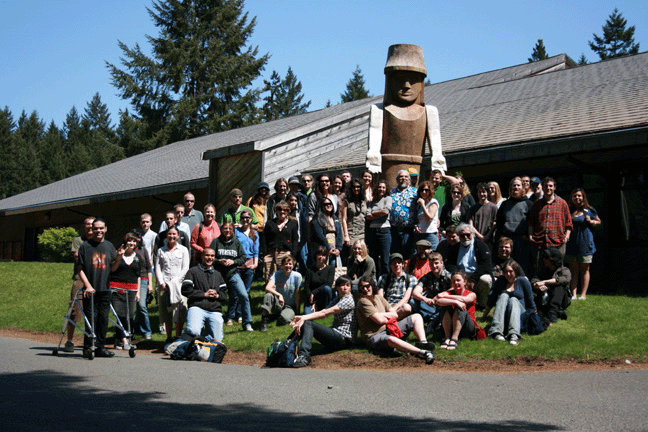 |
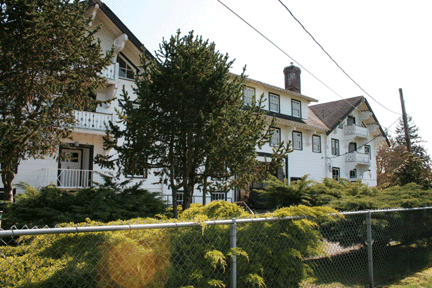 |
|---|
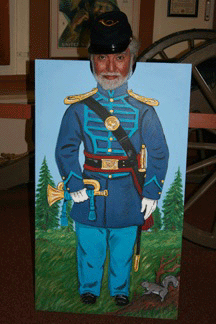 |
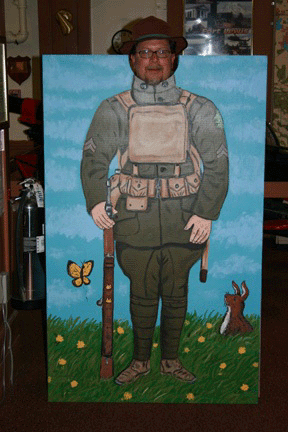 |
|---|
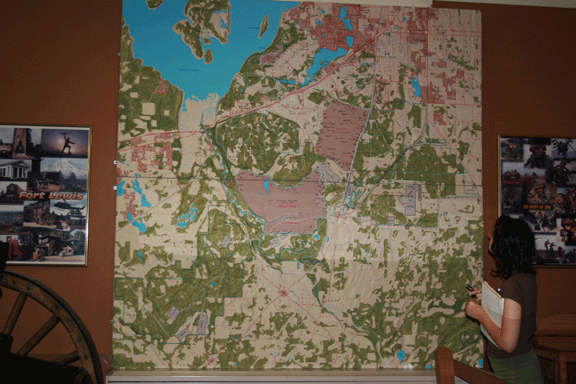 |
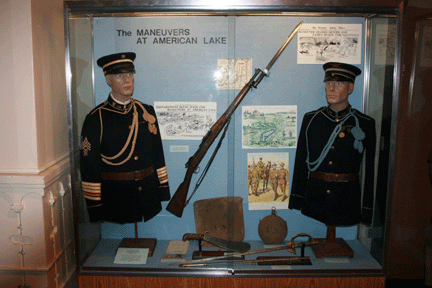 |
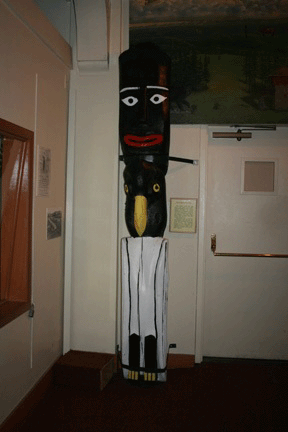 |
|---|
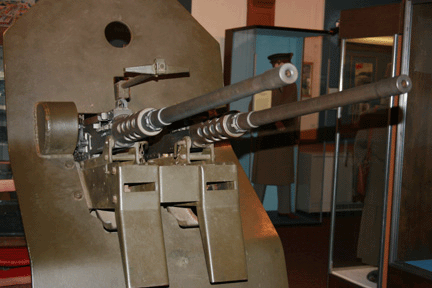 |
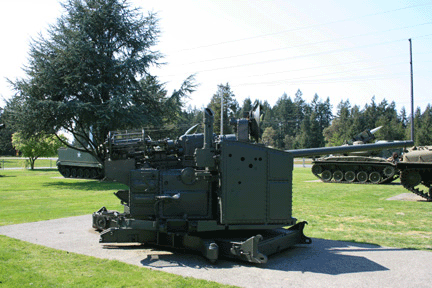 |
|---|
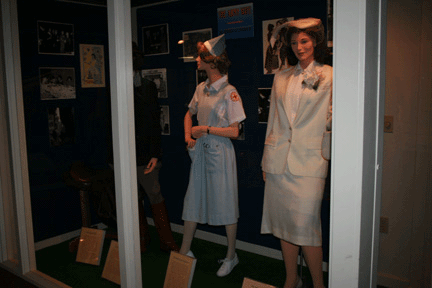 |
|
|---|
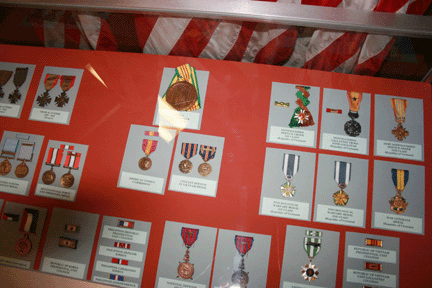 |
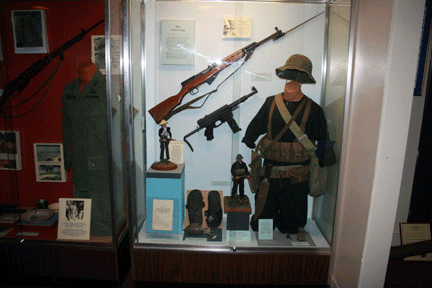 |
|---|
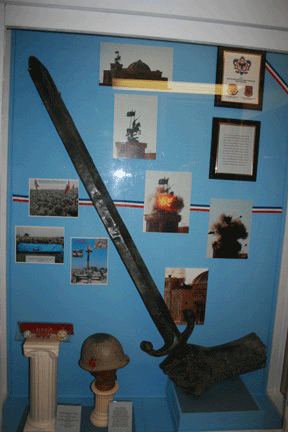 |
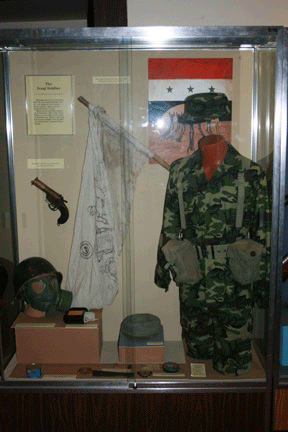 |
|---|
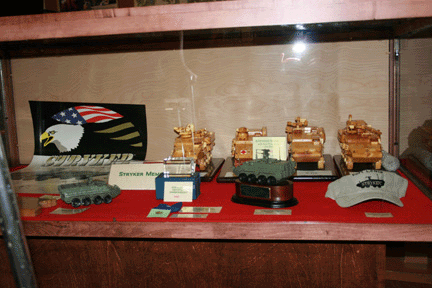 |
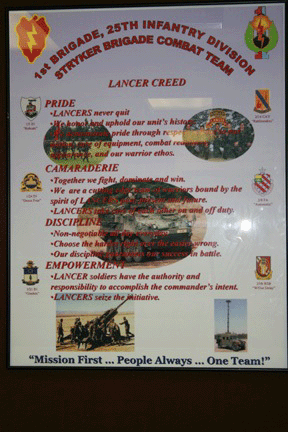 |
|---|
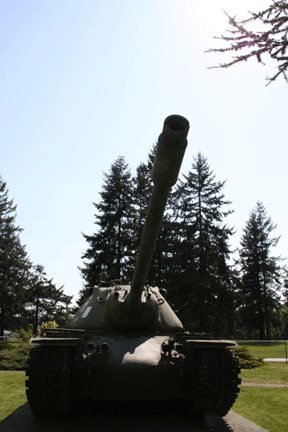 |
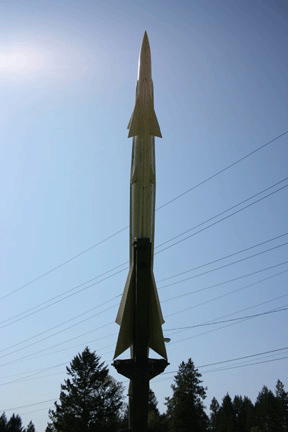 |
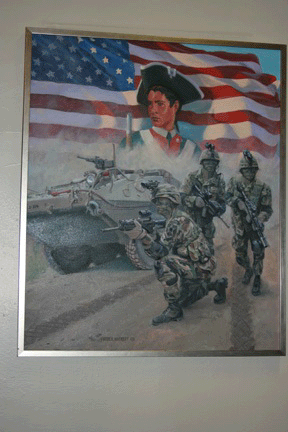 |
|---|
Return to Evergreen Home Page
Made by: Zoltán Grossman grossmaz@evergreen.edu
Last modified: 6/7/2007